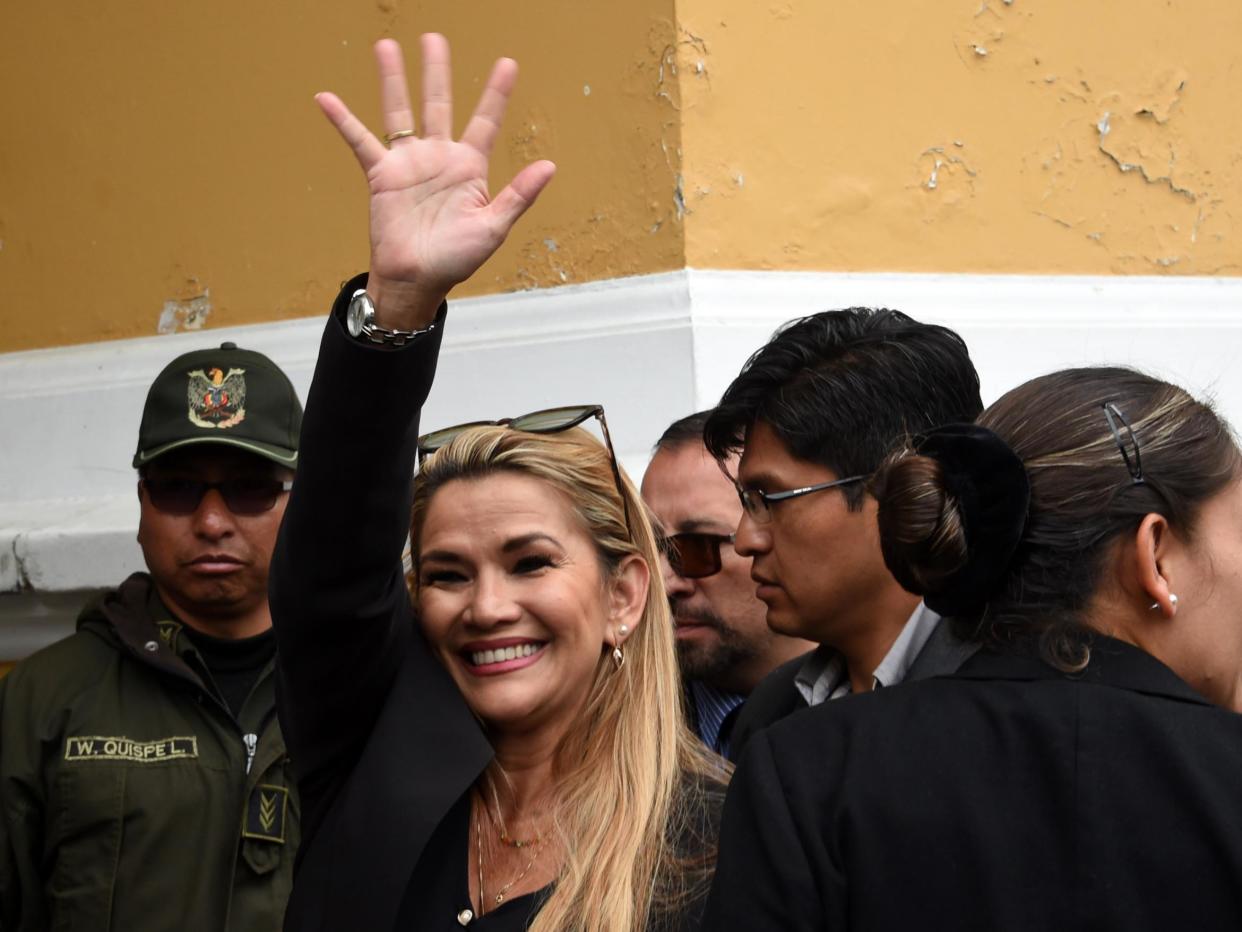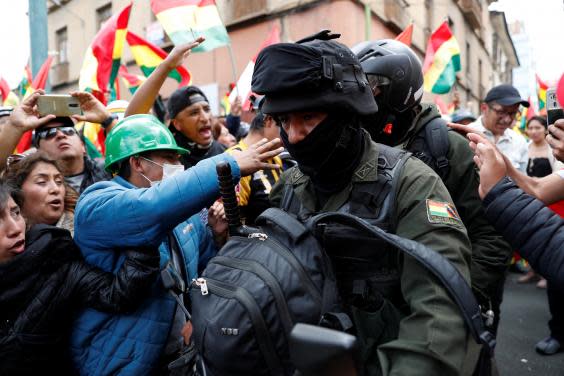Bolivian senator declares herself president in Evo Morales’ absence

Bolivian opposition senator Jeanine Anez has declared herself interim president after Evo Morales resigned from office before fleeing to Mexico.
Bolivia has been plunged into a state of crisis after Morales, who was first elected in 2006, was forced to stand down following weeks of protests and violence over a disputed presidential election result.
Morales, the leader of the leftist Movement for Socialism party, which has governed Bolivia for the past 13 years, had defied the country’s constitution by successfully running for a fourth term in October’s election – though the result was subject to allegations of fraud and manipulation.
Anez has now taken temporary control of the Bolivian senate after a series of senatorial resignations opened up a political vacuum, with Morales relinquishing his hold on power “so there would be no more bloodshed”.
A fierce critic of Morales’ politics and regime, Anez said she was next in line for the presidency and vowed to hold elections soon. Her assumption of power was endorsed by Bolivia’s Constitutional Court.
“Before the definitive absence of the president and vice president... as the president of the Chamber of Senators, I immediately assume the presidency as foreseen in the constitutional order,” Anez said during a parliamentary session on Tuesday night.
Morales branded Anez “a coup-mongering right-wing senator” while lawmakers from his party boycotted the session, saying the appointment was illegitimate.
“Bolivia is suffering an assault on the power of the people,” Morales wrote on Twitter, having fled to Mexico City on Tuesday.
Morales, under pressure from Bolivia’s military chief, resigned on Sunday shortly after an Organisation of American States audit reported widespread irregularities in last month’s election results. This followed weeks of violent protests, fuelled by allegations of electoral fraud.
Bolivia’s first indigenous president subsequently arrived in Mexico under a grant of asylum, leaving his country behind in turmoil. His resignation still needed to be approved by both houses of Congress, and lawmakers could not assemble the numbers needed for formal sessions.
Anez, a second-tier opposition figure in the senate, forged ahead regardless, arguing that Bolivia could not wait. After Morales quit, resignations by allies left vacancies in the only posts listed by the constitution as presidential successors — the vice president, the head of the Senate and the leader of the lower house.
Morales, a one-time llama shepherd from the Bolivian highlands, was first elected as president in 2006. He won praise for lifting millions out of poverty, increasing social rights and presiding over stability and high economic growth in South America’s poorest country.
The chain of events leading to his eventual downfall was triggered by his insistence on holding onto power. He ran for a fourth term after refusing to accept the results of a referendum that upheld term limits for the president.
Despite offering to hold a fresh vote after it emerged there had been “clear manipulation” in last month’s elections, Morales was urged by his rivals and the chief of the armed forces, Gen Williams Kaliman, to step aside in the interests of peace and stability.
Against a backdrop of unrest and protests in La Paz, Bolivia’s administrative capital, Morales announced his resignation, saying the decision had been taken in order to stop fellow socialist leaders from being “harassed, persecuted and threatened”.

Morales fled to Mexico on a government plane and, upon arrival, repeated his allegations he had been forced to resign by a coup.
“While I have life I’ll stay in politics, the fight continues,” he said. “All the people of the world have the right to free themselves from discrimination and humiliation.”
“The president of Mexico saved my life,” he added, thanking President Andres Manuel Lopez Obrador for granting him asylum. He vowed to “continue the struggle.”
Read more
When will the left stop fetishising socialism in Latin America?

